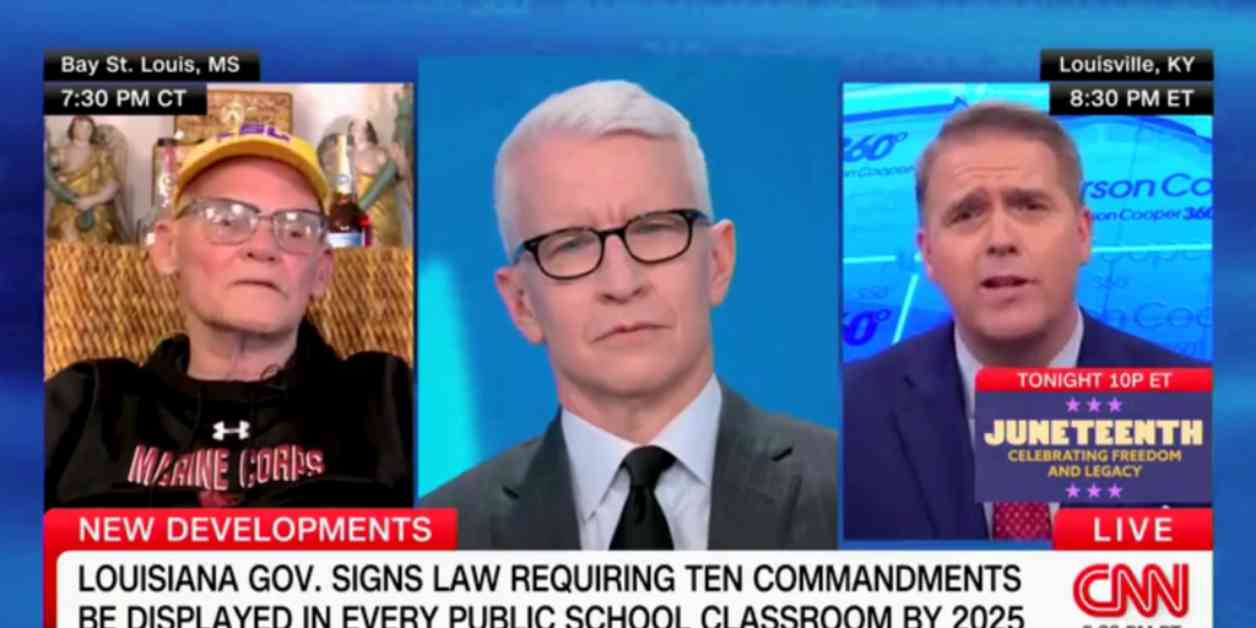CNN contributor Scott Jennings and Democratic political strategist James Carville engaged in a heated debate over Louisiana’s recent decision to mandate the display of the Ten Commandments in classrooms by 2025. The new law has already faced criticism from the American Civil Liberties Union of Louisiana, which plans to challenge it in court, citing violations of the U.S. Supreme Court precedent and the First Amendment.
Carville accused supporters of the law of being akin to book burners, questioning their true intentions behind displaying the Commandments in classrooms. He expressed skepticism about their motives and predicted legal challenges to the law. In response, Jennings defended the legislation, emphasizing the importance of the Commandments as fundamental values of Western civilization. He rejected Carville’s accusations of book burning and reaffirmed his belief in the First Amendment.
The debate escalated as Carville highlighted the correlation between book burners and those advocating for the display of the Ten Commandments. However, CNN’s Anderson Cooper intervened to clarify that he had not heard Jennings endorse book burning in their conversations. While the two speakers held differing views on the issue, they maintained a level of respect towards each other throughout the debate.
Louisiana became the first state to mandate the display of the Ten Commandments in every public school classroom following Governor Jeff Landry’s signing of the bill into law. The legislation, known as H.B. 71, requires a poster-sized display of the Commandments in easily readable font across all public educational institutions, from kindergartens to state-funded universities.
Despite the controversy surrounding the new law, Governor Landry’s office did not provide immediate comments on the matter. Civil rights groups are gearing up to challenge the legality of the mandate, setting the stage for potential legal battles in the future. As the debate continues to unfold, the clash of perspectives between supporters and opponents of the legislation underscores the complex intersection of religion, education, and constitutional rights in the public sphere.
The discussion between Jennings and Carville sheds light on the broader implications of the debate over the role of religion in public spaces and the boundaries of free speech. While both sides articulate valid points, the underlying tension between religious expression and constitutional principles remains a contentious issue in the ongoing dialogue surrounding the display of the Ten Commandments in educational settings. As the legal challenges unfold and the debate evolves, the clash of perspectives serves as a microcosm of larger societal debates over the intersection of faith, governance, and individual freedoms.


















